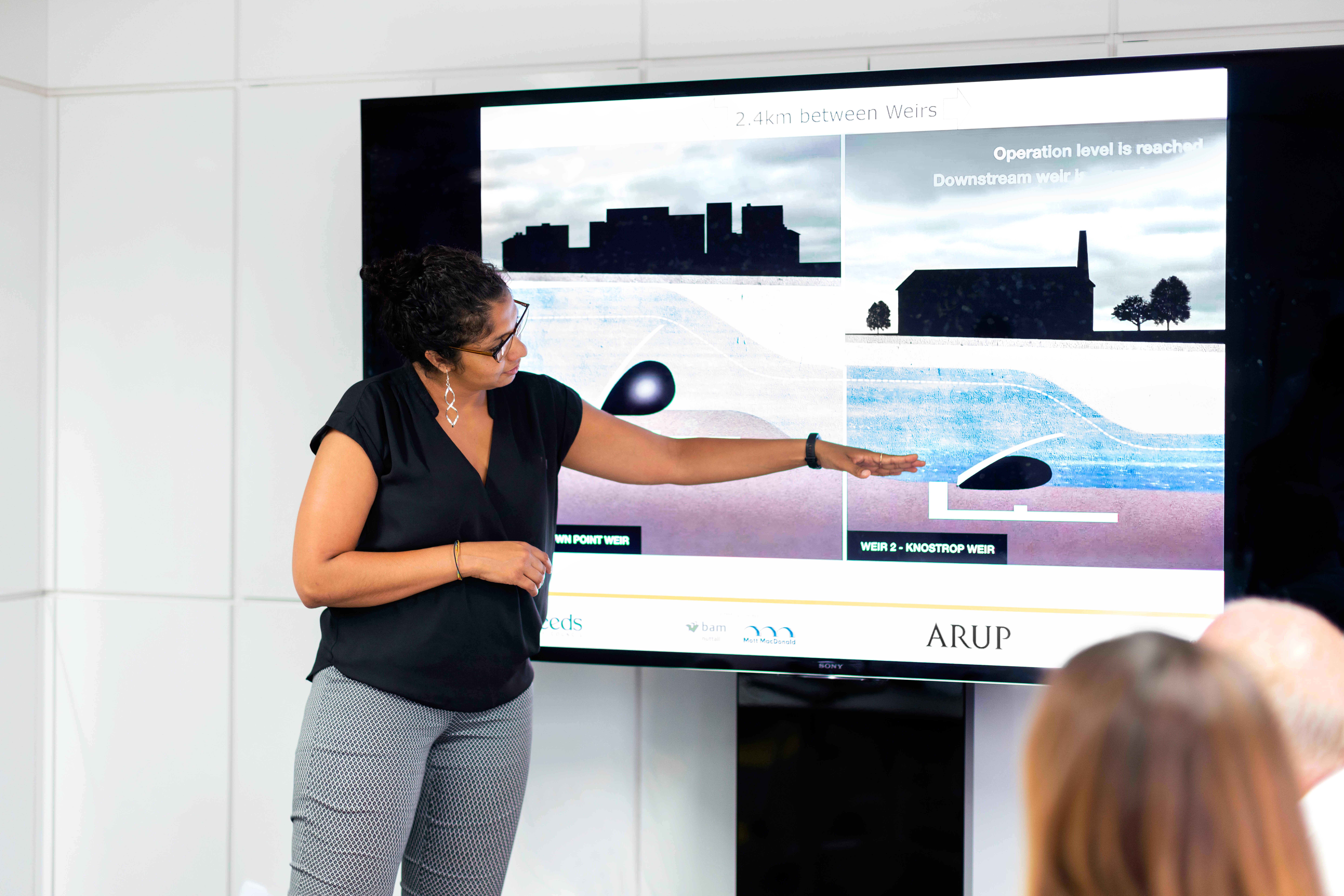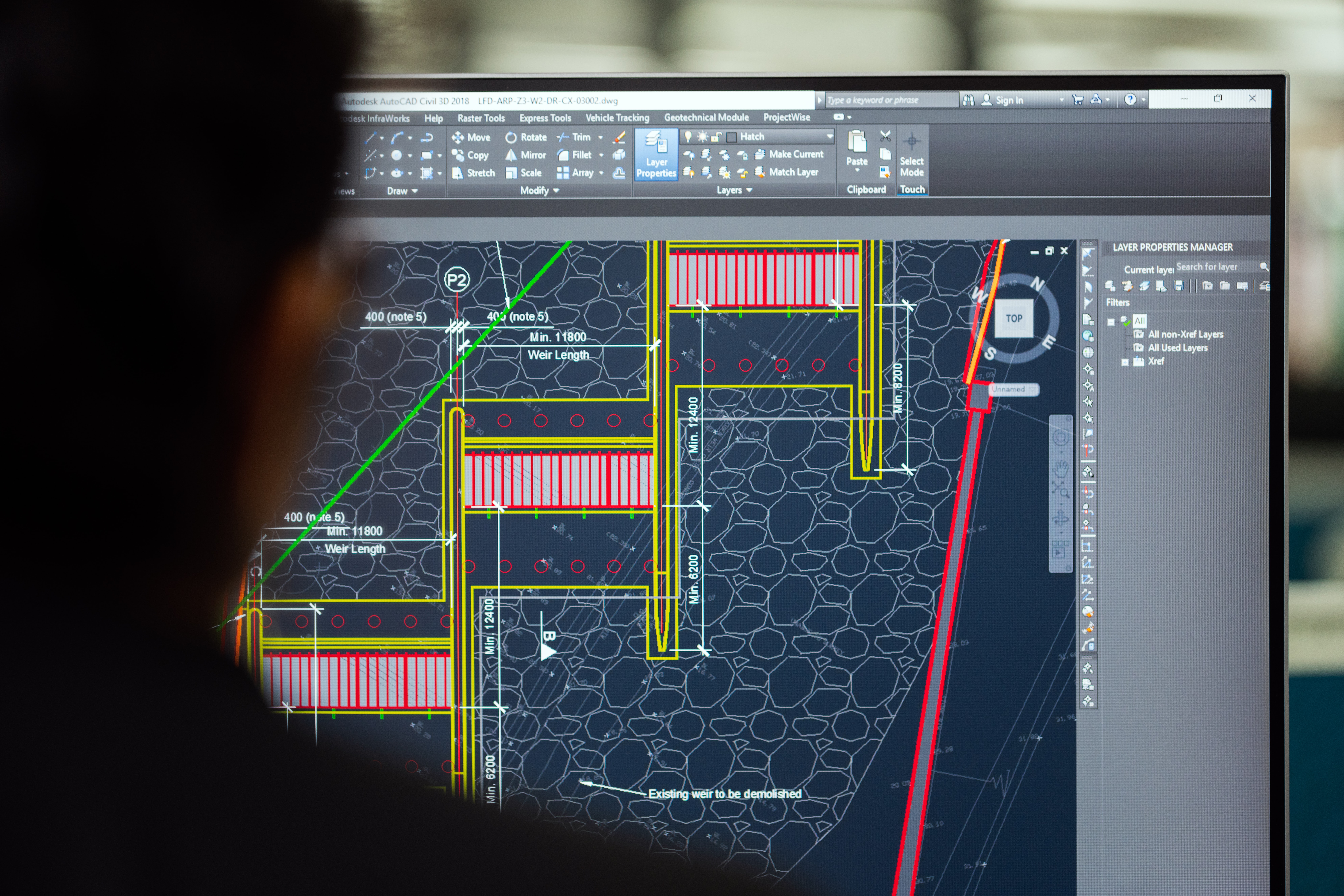Civil engineering students are often required to complete a final project during their undergraduate studies. This project is a capstone experience that allows students to apply the knowledge and skills acquired throughout their coursework to real-world problems.
Student final projects in civil engineering can take many forms, including designing a new building or infrastructure system, analyzing an existing structure or system, or developing new materials or technologies.
To successfully complete a final project, civil engineering students must work closely with their advisors, other faculty members, and professionals in the field. They must also conduct thorough research and analysis, using the latest tools and techniques to gather and analyze data.
Ultimately, a civil engineering final project aims to produce a practical, innovative solution to a real-world problem. The capstone projects require creativity, critical thinking, and a deep understanding of civil engineering principles. These final projects are meant to prepare students for a career in this challenging and rewarding field.
So what topic should you pick if you’re looking to complete a final project for your civil engineering studies? In this article, we’ll explore that question and many more to ensure that you’re prepared to ace your civil engineering classes!
What Are Civil Engineering Projects?

via Unsplash
Civil engineering projects for students are often required by schools during a student’s final year of study and are a chance for the student to prove that they have mastered a certain area of engineering. These projects can cover a wide range of topics and areas of focus, depending on the specific interests and goals of the student.
We will explore some common examples of civil engineering projects for students. Each project usually falls into the category of one of civil engineering’s many subfields.
Many civil engineering students choose to specialize in one area or another. That’s because civil engineering is a broad and diverse field with many subcategories to choose from. Selecting the right area for your civil engineering project may help you pinpoint what you are most interested in within the field of civil engineering.
Structural Design Project
These types of projects usually involve designing a structure using structural engineering principles, such as a building or bridge. Students may use computer-aided design (CAD) software to create 3D models and analyze the behavior of the structure under different loads and conditions.

via Unsplash
Environmental Engineering Project
This type of project focuses on environmental issues related to civil engineering, such as water quality, air pollution, and waste management. Students may conduct experiments and collect data to design and evaluate solutions to environmental problems. Environmental engineering is a highly important field within the industry.
Geotechnical Engineering Project
This type of project focuses on the behaviors of soils and rocks. Students may investigate the properties of different soils and rocks and design foundations, retaining walls, and other structures to withstand the effects of soil movement and other geological hazards. Geotechnical engineering is essential for ensuring our society is literally built on a solid foundation.
Transportation Engineering Project
These projects typically involve designing and evaluating transportation systems, such as roads, highways, and airports. Students may analyze traffic patterns and develop strategies to improve traffic flow and reduce congestion. Transportation engineers play a hugely important role in ensuring every citizen gets where they need to go.
Construction Management Project
This type of project focuses on the management and organization of construction projects, including scheduling, budgeting, and quality control. Students may develop project plans and evaluate the performance of construction teams and contractors. Construction management is a subfield within the realm of civil engineering that can lead to many career opportunities.
Overall, civil engineering projects for students offer an opportunity to apply classroom knowledge to real-world problems and gain practical experience in the field. Students can choose projects that align with their interests and career goals and work with faculty advisors to develop and execute their ideas.
What Are Some Good Civil Engineering Projects for Students?
Some good ideas for civil engineering projects for students include developing a water treatment system, analyzing an existing structural system, or completing a construction management project.
There are many other good civil engineering projects for students, and the task most suitable for a given student will depend on their interests, skills, and background. Here are five potential civil engineering projects that could be suitable for students:
Design of a Sustainable Building
Students could design an environmentally sustainable building, incorporating principles of passive solar design, green roofs, rainwater harvesting, and other strategies to reduce energy and resource consumption. This project would fit well within the field of environmental engineering for students who are interested in sustainability efforts.
Development of a Water Treatment System
Students could develop a water treatment system that removes pollutants and impurities from water sources, allowing access to clean drinking water. There are approximately two million Americans who don’t have access to clean drinking water, and one-third of people around the globe do not have access either. Civil engineers can help solve this problem.
Design of a Transportation Infrastructure System
Students could design a transportation infrastructure system, such as a highway or railway, that considers factors like traffic flow, environmental impacts, and economic considerations.

via Unsplash
Analysis of a Structural System
Students could analyze an existing structural design, such as a bridge or building, and use finite element analysis (FEA) or other computational tools to evaluate the strength, stability, and behavior of the system under various loads and conditions.
Construction Management Project
Students could undertake a construction management project, such as overseeing the construction of a small building or structure, from planning and budgeting to scheduling and quality control. Even if the project is not actually completed, this can be an excellent opportunity to apply real-world skills.
Overall, the best civil engineering projects allow students to apply their classroom learning to real-world problems and engage in creative and innovative solutions that could contribute to society. Students must work closely with faculty advisors, industry experts, and other stakeholders throughout the project to ensure it is feasible and achieves its intended outcomes. Some projects are theoretical while others are executed in real life.
How to Choose a Civil Engineering Project Topic
Choosing a civil engineering project topic can be a challenging but exciting process. Here are some tips to help you select a suitable topic for your project:
Identify Your Interests
Start by considering the areas of civil engineering you are most interested in. Selecting a topic you are passionate about will help keep you motivated and engaged throughout the project.
Consider Your Skills and Knowledge
Take stock of the skills and knowledge you have developed in your civil engineering studies, and choose a project that helps you develop new skills. The most effective civil engineering projects highlight what you have learned as well as your drive to continue expanding your knowledge.
Look for Problems or Challenges to Solve
The best civil engineering projects address real-world problems or challenges. Look for problems or issues in your local community, such as infrastructure problems or environmental concerns, that you could help solve through your project.
Collaborate with Others
Consider working with other students or faculty members on a project if your coursework allows it. Collaborating with others can bring fresh perspectives and ideas and help you develop important teamwork and communication skills. Plus, collaboration is an essential part of day-to-day life in the world of civil engineering.
Consult with Advisors and Professionals
Talk to your faculty advisor, other faculty members, and professionals in the field for their input and advice on potential project topics. They can offer insights on current issues and trends in civil engineering and help you narrow down your ideas.
Ultimately, the best civil engineering project topic aligns with your interests, skills, and knowledge and addresses a real-world problem. By selecting the right topic, you can create a challenging and rewarding project that prepares you for a successful career in civil engineering.
Civil Engineering Student Project Ideas
Civil engineering is a diverse field that offers many exciting and challenging opportunities for students to engage in meaningful projects that can make a difference in their communities. Here are some project ideas for students in different areas of civil engineering:
Building Construction
Students interested in building construction could undertake a project that involves designing and building a small-scale structure, such as a shed or playhouse. This project could include developing a project plan, conducting site surveys, designing the structure using computer-aided design (CAD) software, and overseeing the construction process.
Digital Construction Projects
With the rise of Building Information Modeling (BIM) technology, digital construction projects have become increasingly popular among civil engineering students. Students could develop a BIM model of an existing building or infrastructure system or create a new one for a proposed project.
Earthquake-Related Projects
Students interested in earthquake-related projects could focus on developing strategies to improve the seismic resistance of buildings and infrastructure systems. This could include conducting laboratory experiments, using FEA to analyze the behavior of structures under seismic loading, and designing retrofitting solutions to strengthen existing structures.
Water Resource Projects
Projects can range from designing and constructing water supply systems to managing stormwater runoff. Students could develop a water treatment system, create a rainwater harvesting system, or evaluate the effectiveness of an existing water supply system.
Soil Mechanics Projects
Soil mechanics projects investigate the behavior of soils under different loading conditions. Students could study the properties of different soil types, perform laboratory experiments to measure their strength and deformation characteristics, or use FEA to analyze soil-structure interaction.
Environmental Engineering Projects
Environmental engineering projects could focus on water quality, air pollution, or waste management. Students could develop a pollution control system, design a wastewater treatment plant, or conduct air quality modeling to evaluate the impact of emissions on local communities.
Transportation Engineering Projects
Transportation engineering projects involve designing and evaluating transportation systems, such as roads, highways, and airports. Students could analyze traffic patterns and develop strategies to improve traffic flow and reduce congestion.
Smart Infrastructure Projects
Smart infrastructure projects involve incorporating sensors, data analytics, and other technologies into civil infrastructure systems to improve their efficiency and effectiveness. Students could develop a smart traffic management system, design a smart building energy management system, or evaluate the feasibility of a smart water supply system.
Structure Design and Analysis Projects
Structure design and analysis projects could involve designing and analyzing the behavior of a new or existing structure, such as a bridge or building. Students could use FEA to evaluate the strength and stability of the structure under different loads and conditions and develop retrofitting solutions to improve its performance.
Surveying and Leveling Projects
Projects could involve conducting site topographic surveys, using GPS and other equipment to measure elevations and distances, and creating contour maps and site plans. Students could also conduct hydrographic surveys to map the bottom of a body of water and evaluate its depth and characteristics.
Overall, the key to a successful civil engineering student project is to identify a problem or challenge of interest and relevance to the student and to develop a creative and innovative solution using the tools and techniques of civil engineering.
Final Thoughts
Students completing civil engineering degrees will often need to complete a capstone project. When choosing a project, students should reflect on what skills they have learned and want to continue developing. Students will consult with advisors to complete their projects and may also work with civil engineering professionals and their peers.
Ultimately, the completed projects will shape the direction of each student’s career in the civil engineering field. These projects provide opportunities to highlight learned skills as well as to explore areas of interest and begin working toward a distinct subspeciality within the field of civil engineering.
To learn more about what a career in this industry might look like, head over to our engineering service page for more information about civil engineering.





